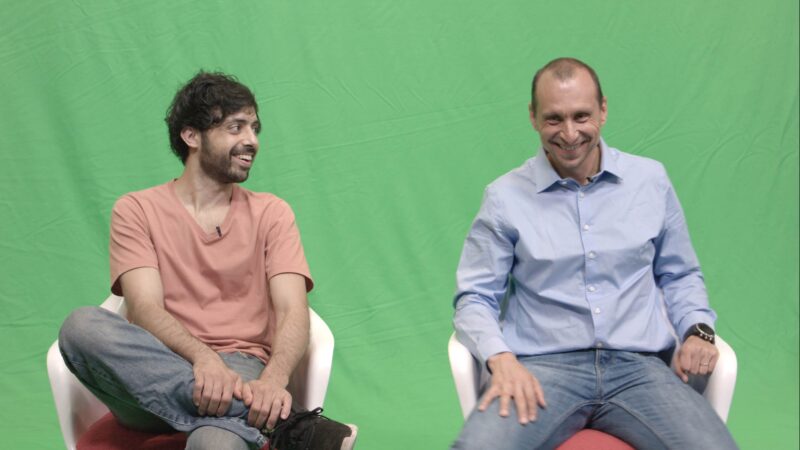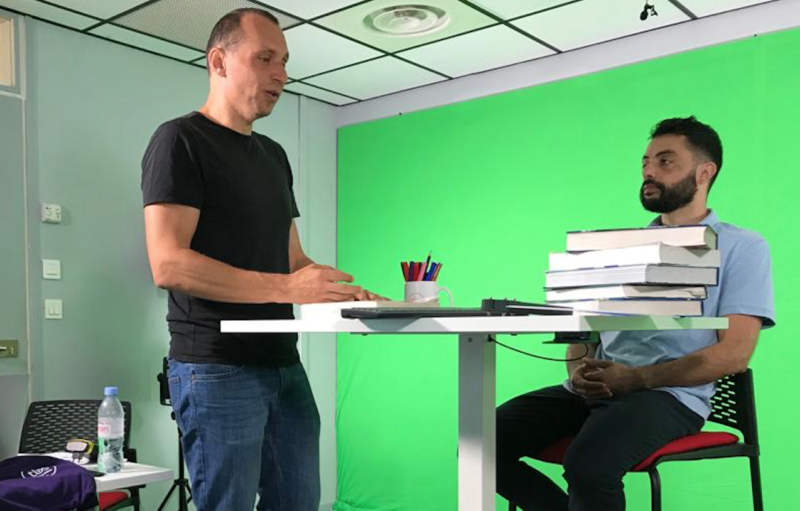We recently featured a funny video on market efficiency, presented by the comedian Sammy Obeid. The video was written and directed by David Stolin, Professor of Finance at Toulouse Business School.
We asked Professor Stolin how the video came about — and how he suggests other educators can use humorous videos to help students understand important financial concepts.
What gave you the idea for the market efficiency video?
Blaise Pascal famously wrote in 1656, “I only made this letter longer because I did not have the time to make shorter”. In this spirit, taking the time to condense a lecture on a topic as important as market efficiency seemed like an investment worth making.
Why did you choose Sammy Obeid to present it?
Sammy is not only a brilliant comedian, but he also has the perfect background. He’s a former teacher with business and math degrees from the University of California at Berkeley. You can see his skill in making science engaging in the hit Netflix series 100 Humans. It’s a great privilege to be working with Sammy.

Sammy and David on set
How do you suggest that teachers and lecturers build this video into a lesson or lecture?
After watching the video, I would suggest having a class discussion that digs into some misleading analogies that can make the concept of market efficiency counterintuitive.
One is, “If I am smart enough to find a good car (or computer, or house) to buy, I am start enough to find a good stock to buy.”
The second one is, “If I am smart enough to find a good doctor (or plumber, or lawyer) for myself, I am smart enough to find a good investment manager for myself.”
A thoughtful discussion would reveal where these analogies break down, and referring back to specific points from the video would make the discussion both more effective and livelier. We are also further developing our teaching note for this video, so educators can find additional ideas in it.
What resources if any do you have to accompany the video and how can teachers and lecturers access them?
For this video and the other videos that we have made, we offer free teaching notes to educators. These notes include potential discussion questions as well as multiple choice questions with answers, and some background information that can be useful to the instructor using the video. These teaching notes can be requested from https://tbs.bs/obeid.
How effective do you think comedy can be in explaining key financial concepts?
I believe that professional-grade comedy deployed in the service of pre-defined learning objectives in collaboration with an experienced educator can result in much more effective learning than traditional exposition. Note all the qualifiers, though.
We have now made humorous educational videos about such topics as loan amortisation, the balance sheet, Net Present Value, short selling and risk and return, so your readers can judge this for themselves.
What sort of response have you had to the videos you’ve produced?
In general, students like our humorous videos, and our learning analytics are showing that they learn better with them. We have received wonderful feedback from educators, including one highly regarded finance professor who wrote on LinkedIn that our video covers in four minutes what it takes 90 minutes to cover in class.
We have also had very positive response from practitioners. One senior asset management executive wrote to me and said: “You really nailed it. It makes sense for the beginner and doesn’t leave any room for the expert to find fault.” It is very heartening to see this kind of validation.

David Stolin: “Sammy is not only a brilliant comedian, but he also has the perfect background.”
A recent study showed that financial practitioners pay little attention to academic research. Why do you think that is?
Like everything, it has to do with incentives. From a typical practitioner’s point of view, getting into academic research can be a very significant time investment that may not be commensurately rewarded. From a typical academic’s point of view, the rewards come from publishing in an academic journal, not from making sure that the research is of value to practitioners. But I think there are more and more people on both sides who are trying to change this.
What plans do you have for future videos?
Many — and we are open to suggestions. Two particular subjects we’re going to be tackling are valuation using comparables and Monte Carlo simulation.
If you haven’t yet seen the market efficiency video, here it is:
What are you going to read next? Here are some suggestions:
Sport, investing and the paradox of skill
Practitioners still pay too little attention to academia
Investing shouldn’t be a gamble
Are you still playing by the old rules?
The best friend investors have ever heard of
Do you think you’re smarter than Terry Smith?
Picture from the official Netflix website for 100 Humans
© The Evidence-Based Investor MMXX









